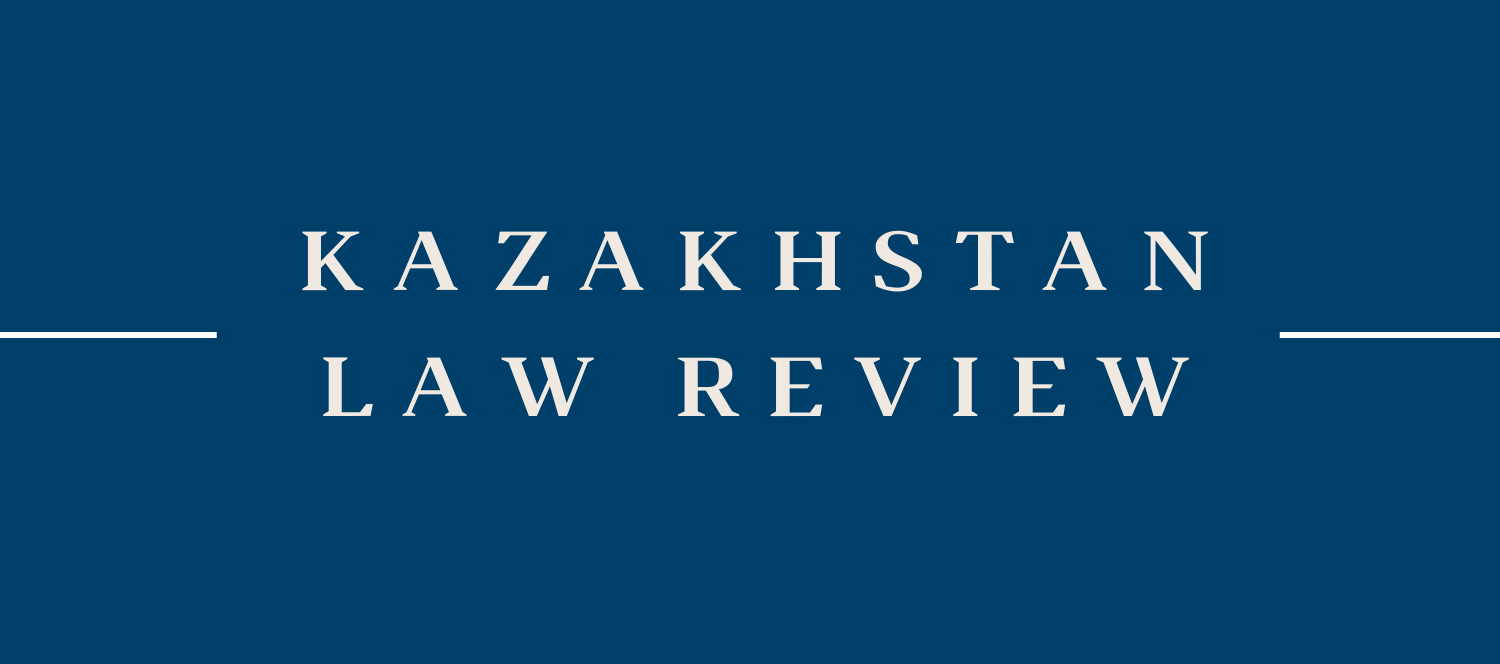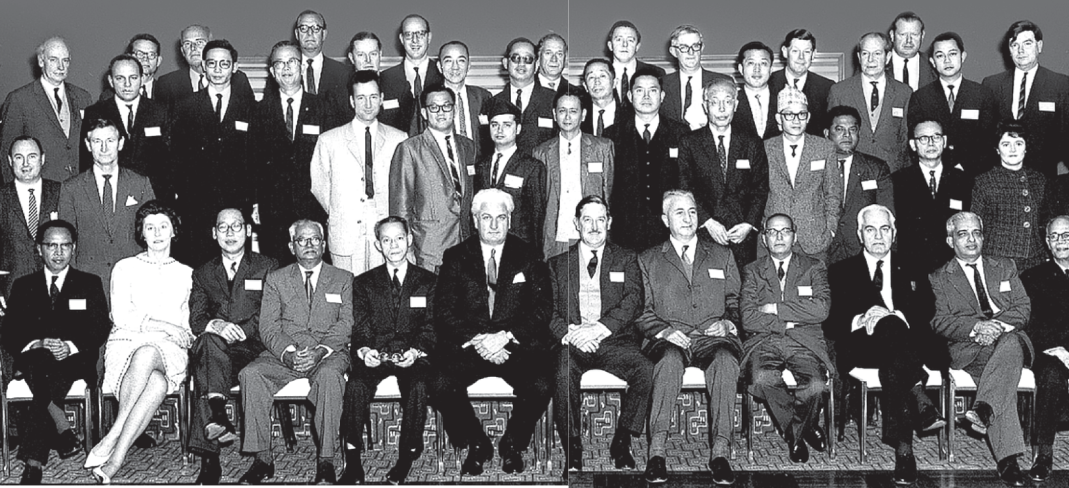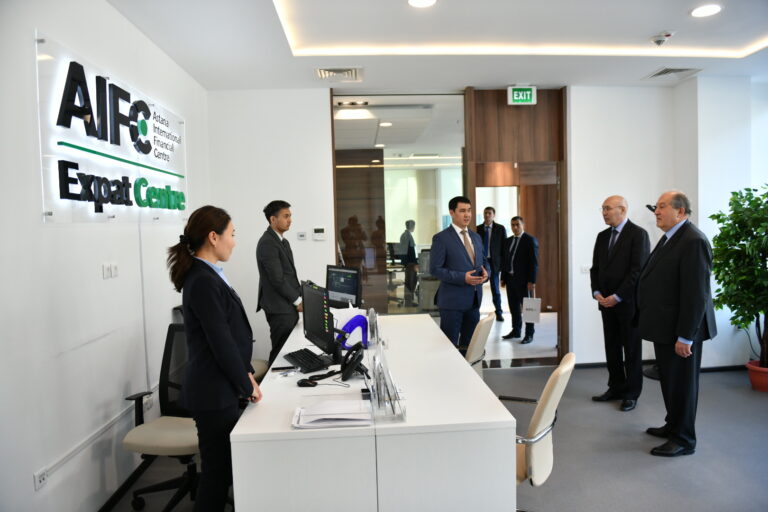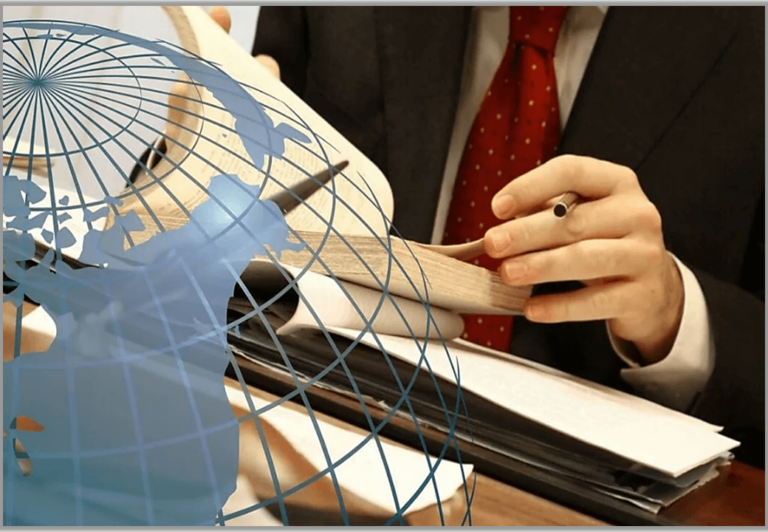The Chamber of Legal Consultants “Kazakhstan Bar Association” (KazBar), which is a full member of the International Bar Association (IBA), actively cooperates with legal Associations of other countries in order to exchange experience in the development of self-regulatory professional organizations of lawyers. One such example is cooperation with the LAWASIA, the international legal association focused on the welfare of the legal profession and the promotion of human rights and the rule of law in the Asia-Pacific region, including Central Asia. On March, 2021, the Kazakhstan Bar Association signed a Memorandum with the LAWASIA.
“Last year, representatives of our partners participated in the international conference of lawyers, organized by the Kazakhstan Bar Association, where issues of providing legal assistance within the framework of uniform rules, standards and ethical norms were discussed. Today, LAWASIA presented extended information about its activities for our digital magazine «Kazakhstan Law Review», — commented Zhumageldy Yelyubaev, Chairman of the Chamber of KazBar. He is sure that members of our Chamber and a wide range of legal community in Kazakhstan will be interested to get acquainted with the activities of these colleagues.
We offer you the full text of the message from the LAWASIA.
Gordon Hughes
Secretary-General, LAWASIA
Article prepared at the request of the Kazakhstan Bar Association, December 2022
Introduction
LAWASIA is an international legal association focussed on the welfare of the legal profession and the promotion of human rights and the rule of law in the Asia-Pacific region, including Central Asia.
LAWASIA is governed by a council which in turn delegates authority to an executive committee («ExCo»). Council and ExCo are supported by a full-time secretariat currently based in Sydney, Australia.
LAWASIA’s council comprises the peak legal associations of 38 countries. In addition, individual membership is available to persons involved in LAWASIA’s committee activities or who are interested in, and supportive of, LAWASIA’s general objectives.
The Kazakhstan Bar Association («Kazbar») is not a member organisation. However in March 2021 it signed a Memorandum of Understanding with LAWASIA pursuant to which both parties committed to «actively promote and facilitate the development of a long-term professional cooperative relationship».
LAWASIA has an extremely active role in developing and promoting specialist legal expertise in a range of areas, with 15 committees dealing with issues such as alternative dispute resolution, Asia-Europe transnational law, IT and data protection, family law, intellectual property, environmental law and One Belt One Road.
This article, however, focuses on LAWASIA’s role in addressing human rights and rule of law issues.
Why was LAWASIA founded?
LAWASIA was conceived at a United Nations Human Rights Seminar in Kabul in 1964.
Afghanistan was an interesting place at the time, having just taken tentative steps towards a more democratic form of representation by amending its constitution to curtail the political power of the Royal Family and, in particular, to prohibit a member of the Royal Family from holding the Office of Chief Justice.
The initial seminar discussion culminated in the inaugural conference of LAWASIA, held in Canberra in August 1966. John Kerr (later Sir John Kerr and Governor General of Australia) extended his tenure as Law Council President and deferred his elevation to the bench so as to chair the conference as LAWASIA’s first president
The inaugural conference adopted the LAWASIA constitution. The objectives of the organisation were enshrined in Article II, and have remained largely unchanged since that time. Most fundamentally, objective 1(a) is to «promote the administration of justice, the protection of human rights and the maintenance of the rule of law within the Region«.
The LAWASIA «Region» was defined as comprising countries included in ESCAP, the Economic and Social Commission for Asia and the Pacific.
LAWASIA’s secretariat was initially established in Sydney and the Founding Secretary General was Paul Toose QC, a former Honorary Secretary of the Law Council of Australia who would later be appointed a Judge of the Supreme Court of New South Wales.
1966 Inaugural Conference in Canberra, Australia
LAWASIA’s Human Rights and Rule of Law objectives
To fully appreciate LAWASIA’s work, it is appropriate to start by focusing upon objective 1(a) from its constitution, and which as mentioned above articulates LAWASIA’s prime object as being to «promote the administration of justice, the protection of human rights and the maintenance of the rule of law within the Region«.
The two key committees in this regard are the Human Rights Committee and the Constitutional and Rule of Law Committee.
Often it is not a simple task to categorise one issue as relating to «human rights» as opposed to «rule of law» – the two concepts inevitably overlap and interact.
Human Rights Committee
The Human Rights Committee is currently chaired jointly by Arthur Moses SC, a former president of the Law Council of Australia, and Shanmuga Kanesalingam from Malaysia. Vice chairs are Dr Pillkyu Hwang from Korea and Rebecca Preston from Australia. The Committee’s functions include researching and highlighting human rights issues affecting the Asia-Pacific region, organising or assisting meetings and seminars on the subject of human rights, arranging observer missions and drafting statements for adoption by the Council.
Rule of Law Committee
The Constitutional and Rule of Law Committee is chaired by Dr Cyrus Das, a former president of the Bar Council of Malaysia. Vice Chairs are Steven Thiru, also a former president of the Bar Council of Malaysia, and Bernard Banks from New Zealand. The Committee’s role is to monitor developments within the ESCAP region which potentially pose a threat to constitutional governance or traditional values relevant to the rule of law.
The concept of the «rule of law» essentially involves adherence to constitutional and democratic processes of government.
Since that time, LAWASIA has been active in monitoring, promoting and advocating the rule of law in numerous other ways. A cross-section is mentioned below.
Key issues
LAWASIA has commented on a broad range of human rights and rule of law issues over the years.
Issues falling within the general scope of objective 1(a) in the LAWASIA constitution are potentially many and varied, and a cross-section is set out below.
Unconstitutional governance
A failure to observe democratic processes of governance can pose a direct threat to the rule of law, and this is an issue which has long occupied LAWASIA’s attention.
Fiji, for example, has proved to be fertile source of debate about the rule of law. This goes back to LAWASIA’s statements of concern following the Rabuka coup in 1987 and, in particular, its direct effect on the legal profession, including the jailing of Justice Kishor Govind, at the time the chair of the LAWASIA Human Rights Committee.
Similar concerns regarding Fiji were expressed in 2000 following the George Spaight coup attempt, and in 2006 following the Bainimarama coup. In 2007, LAWASIA president Mah Weng Kwai led a delegation to Fiji to study the ramifications of the 2006 Bainimarama coup.
In a similar vein, the LAWASIA council called in 1988 for reform to the Bangladesh legal system to render it «consistent with the rule of law».
In the early part of the twenty first century, LAWASIA issued numerous statements regarding Nepal, and sent a fact-finding mission to that country as it underwent the sometimes challenging process of converting from a constitutional monarchy to a republic. In 2008 LAWASIA President Mah Weng Kwai participated as an observer in the Nepal national elections.
In 2018, LAWASIA despatched a fact-finding mission to the Maldives in response to a series of systematic government initiatives which had the effect of adversely impacting the independence of the judiciary, the independence of the legal profession, the rule of law and related human rights matters.
Independence of the judiciary
One area in which LAWASIA has been consistently active since its inception involves support for the independence of the judiciary.
The cornerstone of LAWASIA’s formal position in relation to the independence of the judiciary lies in one of its finest and most enduring documents, the Beijing Statement of Principles on the Independence of the Judiciary in the LAWASIA Region. By way of background, every two years a conference of Supreme Court Chief Justices from the Asia Pacific Region is held in conjunction with the judicial section of LAWASIA, coinciding with LAWASIA’s annual conference. At the conference of Chief Justices held in Beijing in 1997, the Beijing statement was adopted and subsequently signed by 32 Chief Justice’s throughout the Asia Pacific Region.
The Beijing statement in essence emphasises the fundamental importance of the independence of the judiciary and comments on a range of related issues including the objectives of the judiciary, the appointment of judges, the tenure of judges, judicial conditions and the relationship between the judiciary and the executive.
On numerous occasions LAWASIA has had cause to refer to the Beijing Statement when emphasising concern over events relevant to the independence and general functioning of judicial officers. One such example was a Council resolution in Tokyo in 2003 which expressed regret over the recent assassination of Judge Sok Setha Mony in Cambodia who, earlier that year, had achieved prominence when sentencing a former Khmer Rouge provincial chief to life in prison.
LAWASIA’s concern for the independence of the judiciary of course pre-dates the Beijing Principles. An earlier example occurred in 1988 when the Malaysian government removed the Lord President (or Chief Justice, as the position is now known) and two other Supreme Court judges on what many regarded as unsubstantiated grounds of «judicial misbehaviour». This prompted a strong resolution at the Council meeting in 1988 in support of the independence of the judiciary and, proving that it has a long memory, LAWASIA marked the 20th anniversary of the sacking of the Chief Justice by participating in a Panel of Eminent Persons in 2008 which re-examined the events of 1988. The Panel concluded that there had been no justification for this interference with the court.
In more recent times, LAWASIA issued a statement of concern in February 2021 regarding the intimidation of Hong Kong Chief Magistrate Victor So Wai-tak who had been designated by the Chief Executive of Hong Kong to adjudicate cases under the National Security Law, and in June 2021 it expressed concern about derogatory news media reports which criticised and potentially undermined Samoa’s courts in the wake of challenges to the results of the April 2021 general election.
In August 2022, LAWASIA issued a statement of concern over the detention and attempted deportation of Kiribati High Court Puisne Judge David Lambourne. The statement described the government’s move as «a blatant attack on the judiciary, undermining both the rule of law and access to justice in Kiribati», noting that when combined with the earlier suspension of the Chief Judge of the High Court, there was now no functioning judiciary at the Hugh Court and Curt of Appeal level.
Independence of the legal profession
Of equal importance to the independence of the judiciary is, of course, the independence of the profession.
Examples of interference the profession consistently come to LAWASIA’s attention and are addressed.
LAWASIA’s activity in this area goes back many years. For example:
- in 1982 and again in 1983, under the Presidency of Professor Murat Bunnag of Thailand, LAWASIA expressed its concern about the arrest and imprisonment without trial of the President of the Iranian Bar Association and the disbarment from court of lawyers on account of their political activities and affiliations;
- again in 1983, LAWASIA expressed concern about the harassment of lawyers in Pakistan, under martial law at the time, who criticised the administration;
- in 1985, LAWASIA expressed concern about the arrest in Malaysia of Param Cumaraswamy, President of the Bar Council and a future LAWASIA President, after publicly commenting that there appeared to be one law for the rich and another for the poor;
- in 1988, under the Presidency of Mr GTS Sidhu of Malaysia, the Council expressed «regret» at the use of internal security legislation to curtail the involvement of a former President of the Singapore Law Society, Francis Ceow, in the 1988 Singapore general election;
- in 2004, LAWASIA president G L Sanghi condemned a spate of arbitrary arrests of lawyers in Nepal;
- in 2014, LAWASIA President Isomi Suzuki in 2014 issued a statement expressing concern about the continuing use of the Sedition Act 1948 in Malaysia against lawyers.
LAWASIA’s advocacy for the safety and independence of lawyers continues to this day. More recent examples include:
- in 2016, LAWASIA Present Prashant Kumar wrote to the Prime Minister of Malaysia expressing concern over the Malaysian Government’s announced intention to amend the Legal Profession Act 1976 with the effect of severely compromising the independence of the Malaysian legal profession. In the same year, invoking the UN Basic principles on the Role of Lawyers, LAWASIA issued statements of concern regarding the arrest of Turkish lawyers involved in the defence of the leader of the Kurdish Workers Party, a terrorist attack in Quetta, Pakistan, directed at lawyers who had gathered to pay respects to the assassinated president of the Bar Association of Balochistan, and a subsequent attack later that year on the District Court in Marden, Pakistan;
- statements of concern in 2017 concerning treatment of lawyers in China, in 2018 regarding continuing violence and threats of violence against lawyers in the Philippines, in 2019 regarding the harsh sentence issued against Iranian human rights lawyer Ms Nasrin Sotoudeh following a secret trial, and in 2021 regarding concerns for the safety of the Afghan Legal Community following the Taliban’s takeover of civil administration in that country.
In 2022, LAWASIA remained active in this area, issuing statements of concern regarding a charge of contempt issued against Fiji lawyer Richard Naidu, and a statement condemning an arson attack by a disaffected client on a law office in Daegu, South Korea.
LAWASIA also expressed concern in 2022 for the welfare of lawyers in Sri Lanka following the use of force to disperse protestors who had peacefully occupied the Presidential secretariat and surrounding areas, noting the important role being played by the Bar Association of Sri Lanka in highlighting a looming economic crisis and its possible impact on the rule of law and democracy.
Separation of powers
Closely related to issues involving unconstitutional governance, the independence of the judiciary and the independence of the profession are issues relating to the separation of powers.
At various points, these issues all start to intersect.
Under the Presidency of Lester Huang of Hong Kong in 2010, the LAWASIA council noted that the doctrine of the separation of powers was interpreted and applied differently across jurisdictions, but ultimately was «fundamental to any interpretation of the doctrine of separation of powers that the judiciary is a separate and independent institution, distinct from the executive and the legislature«.
This significant council debate and resolution demonstrated the ability of a cross-section of lawyers from a cross-section of jurisdictions to achieve consensus at a high level in respect of a principle which is universally acknowledged but inconsistently applied.
The significance of resolutions of this nature is that they are then repeatedly quoted and relied upon, as representing the considered and unanimous opinion of the legal profession on a regional basis, when confronting and commenting on instances where the lines of separation have become blurred.
Human Rights and Children
LAWASIA has a long history of support for the welfare and human rights of children.
Following the 1993 World Congress on Family Law and Human Rights held in Sydney, Australian solicitors Stuart Fowler and Rod Burr (both subsequently judges of the Family Court of Australia) arranged for proceeds of AU$160,000 to be applied to the creation of the LAWASIA Children’s Trust which today continues to act as a source of funds for LAWASIA initiatives focussed on promoting and protecting the rights of children throughout the Asia pacific Region.
LAWASIA has consistently monitored and raised issues relevant to the human rights of children in the Asia-Pacific Region, everything from the practice in some Middle East countries of forcing children to ride as camel jockeys, to the practice of child prostitution in Cambodia.
LAWASIA now holds a bi-annual conference on Children and the Law, and in 2011 under the late President Malathi Das it adopted a Declaration on Children’s Rights at its Council meeting in Seoul, endorsed the so called LAWASIA Siem Reap Principles and confirmed LAWASIA’s commitment to the UN Convention on the Rights of the Child.
Human rights generally
There have been a range of other LAWASIA statements, resolutions and declarations relevant to a range of aspects of human rights. These have included:
- resolutions on the need for a more humane approach to the legal regulation of asylum seekers;
- an expression of concern about the proliferation of weapons of mass destruction; and
- concern about human rights abuses in Nepal (2004), Myanmar (2017) and Brunei (2019).
At the height of the COVID-19 pandemic, LAWASIA issued a lengthy statement calling for the proportionate implementation of emergency measures. The statement was prompted by concerns over the potential use of quarantine restrictions as a means of curtailing the legitimate activities of courts and lawyers. The statement called on governments to «ensure that all measures adopted are appropriately balanced against the rights being violated, and that States adhere to their binding human rights obligations while tackling the spread of the virus», and to «ensure that the rights of members of the legal profession, including human rights defenders, are protected, and that they are enabled to perform their professional functions and their work towards protecting and promoting human rights».
In March 2022, LAWASIA addressed the implications of the Russian invasion of Ukraine, specifically the impact of military activity on civilians including women, children and medical staff. LAWASIA president Melissa Pang called on Russia to «cease hostilities immediately, and peacefully withdraw its troops from Ukraine, to uphold the rule of law and respect the international conventions, treaties, accords and principles to which it has agreed to be bound».
Access to justice
Access to legal representation is another form of fundamental human right.
In this context, it is relevant to emphasise the adoption by the LAWASIA council in 2010 of its Statement on Principles of Access to Justice. While expressly refraining from recommending specific access to justice initiatives for implementation within the region as a whole, the principles assert the fundamental importance of facilitating access by individuals to courts and guaranteeing legal representation.
Politics
LAWASIA seeks not stray into domestic politics. Its philosophy has always been that any form of political activism would potentially compromise its credibility as an independent commentator on human rights and the rule of law.
The difficulty, of course, is that it is often a fine line to be drawn. If governments cause human rights abuses, fail to respect the separation of powers, or fail to appropriately respond (or indeed facilitate) attacks on the legal profession, then the response of international legal organisations might well be considered «political».
LAWASIA has always been careful to tread carefully in this regard and hopefully its judgement is usually correct. Whilst there are many instances where it has refrained from speaking out because of concerns that it would appear politicised, it did feel able to speak out:
- to condemn the shooting down of a Korean Airlines flight by a Soviet fighter over the Sea of Japan in 1983 which caused the death of 269 passengers and crew, and the downing by a United States missile of an Iran Air flight in Iranian airspace in 1988 which resulted in 290 deaths;
- to condemn the assassination of Senator Benigno Aguino in the Philippines in 1983, and the assassination of Indian Prime Minister Indira Gandhi in 1984;
- to criticise the French government for its nuclear testing in the Pacific in 1995;
- to criticise the United States over conditions at Guantanamo Bay in 2003;
- to highlight perceived irregularities in the various trials of Malaysia’s former opposition leader and now Prime Minister Anwar Ibrahim, dating back to 1988; and
- as mentioned above, to draw attention at various times to a range of government activities in jurisdictions as diverse as Fiji, Samoa, the Maldives, Pakistan, Sri Lanka, Bangladesh, Cambodia and Russia.
Annual conference
Much of LAWASIA’s activity stems from its Annual Conference. The annual conference provides a forum for discussion of human rights, rule of law and other matters. It is also accompanied by the annual council meeting and, every two years, the Conference of Chief Justices of the Asia-Pacific Region.
Beginning in Kuala Lumpur in 1968, the LAWASIA conference was initially a biennial event. With the increasing ease of travel, and with an increasingly heavy workload, the conference converted to an annual event following the 2007 meeting in Hong Kong.
Due to COVID-19 travel and meeting restrictions, the conference was conducted online by the LAWASIA secretariat in 2020 and 2021, but live meetings resumed in 2022 and the conference was held in Sydney, Australia, in November of that year.
Human rights and the rule of law were a significant component of the Sydney program, addressing issues such as modern slavery, the rights of women lawyers, appointment criteria for judges, public sector integrity and the implications of the Russian invasion of Ukraine.
The next conference will be held in November 2023 at Bengaluru, India.
The large attendance and enthusiastic participation at the Sydney conference demonstrates that LAWASIA remains as active and as relevant as ever.




